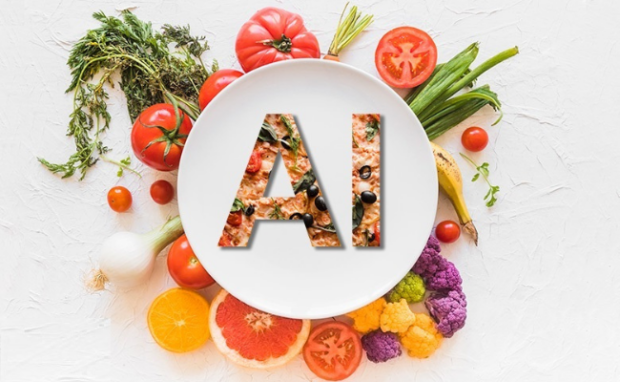FoodProX AI Can Gauge Food Processing Levels
Artificial intelligence sparked a breakthrough in food and dietary research with FoodProX, an AI that gauges the processing level of food products. Using the US Department of Agriculture’s Food and Nutrient Database, the software confirmed more than 73% of food in the United States is ultra-processed.
This project proves that artificial intelligence is more than generative programs like ChatGPT and DALL-E. For example, this food processing detector proves AI can help reveal new insights into human health. As a result, this technology can help us live longer, healthier lives by guiding what we eat daily.
This article will elaborate on the FoodProX project and its effects. Then, I will discuss how it uses the NOVA classification system to guide dietary choices. More importantly, I will explain how you can try this innovative use of artificial intelligence!
What is FoodProX?

Photo Credit: softwebsolutions.com
The food processing checker is a Northeastern University’s Center for Complex Network Research project. It is a machine learning algorithm that predicts the degree of processing in US food products.
The AI classifier grades food products using the US Department of Agriculture’s Food and Nutrient Database for Dietary Studies. Then, it categorizes foods in the NOVA classification system.
Researchers from the University of São Paulo, Brazil, created it, claiming it is “widely used in epidemiological studies.” Also, the technology bridged gaps in the Nutrient Database for Dietary Studies.
It categorized “complex recipes and mixed foods and meals” and provided a more accurate way to examine processed foods. Consequently, Northeastern experts gained a better understanding of how processed foods are.
That quality is an important step for studying the health impact of such products. FoodProX uses the NOVA system, but researchers admit it doesn’t account for different processing levels.
The experts wrote in their paper, “The perceived homogeneity of NOVA 4 foods limits both scientific research and practical consumer guidance on the health effects of differing degrees of processing.”
You may also like: Fasting May Harm Reproductive Health
“It also reduces the industry’s incentives to reformulate foods towards less processed offerings, shifting investments from the ultra-processed NOVA 4 foods to the less processed NOVA 1 and NOVA 3 categories.”
Giulia Menichettim, the research paper’s lead author, explained, “In the paper, what we do is really say that we believe that nutritional information, so the chemicals that are measured as nutrients in the nutritional facts, somehow encode the fingerprint of food processing.”
“Because when we process a food, when we modify some staple ingredients, we change its chemistry in many different ways.” Northeastern uses those “fingerprints” to see the chemical changes made to a specific food.
How to use FoodProX?
Ultra-Processed Foods: AI’s New Contribution to Nutrition Science
Researchers developed a machine learning algorithm, FoodProX, capable of predicting the degree of processing in food products.https://t.co/a5PsvnuxjY
2/3
— Neuroscience News (@NeuroscienceNew) June 2, 2023
The best part about this AI food classification research is you can try it! Test the FoodProX AI research program by following these few instructions:
- Head to truefood.tech and click the Explore Foods button to enter the TrueFood search page.
- Next, type the brand and name of your favorite foods to see a list of related items.
- Select the one you want to open its nutritional breakdown.
You may also like: Study Says Eating Cold Food Boosts Appetite
The TrueFood website uses FoodProX to score the nutritional value of each food item compared to similar ones. Also, it colors results to indicate how healthy its ingredients are based on their amounts.
For example, Oui Petite Yogurt got a red 100 TrueFood score because it has more calories and sugar than other yogurt brands. However, the website warns that its machine-learning tool is a prototype.
FoodProX can make scoring mistakes and does not consider proprietary food additives and chemicals from branded products. More importantly, its researchers advise people to consult doctors for reliable dietary advice.
Conclusion
FoodProX estimates how processed a food item is via artificial intelligence and the NOVA classification system. However, you must not rely on it for your dietary needs.
The AI program can make errors and cannot check every ingredient in a particular product. Also, the researchers remind people to consult their physicians or dietitians about eating healthily based on their health conditions.
Nowadays, artificial intelligence is advancing human wellness in numerous ways. Learn more about these developments and other digital trends at Inquirer Tech.
Frequently asked questions about FoodProX
Who made the FoodProX AI?
Network scientists from the Network Science Institute created the food classification AI program. Guilia Menichetti, principal investigator at Harvard Medical School, leads the project. Meanwhile, her colleagues are AstraZeneca researcher Babak Ravandi, data scientist Peter Mehler, and network scientist Albert-László Barabási.
Can I use FoodProX AI for free?
You can try the food classifier program by opening truefood.tech. Enter the name of any food item and see the results for free. However, you should not rely on the software as it is a prototype prone to errors. The Northeaster University researchers remind users to consult doctors for proper dietary advice.
Why is FoodProX an important project?
Many foods have undergone extreme processing, classifying them as “ultra-processed.” Eating them poses numerous risks, such as increasing your cancer risk, ingesting unwanted additives, and gaining weight. FoodProX could help people become more conscious of their eating habits, giving us longer and healthier lives.